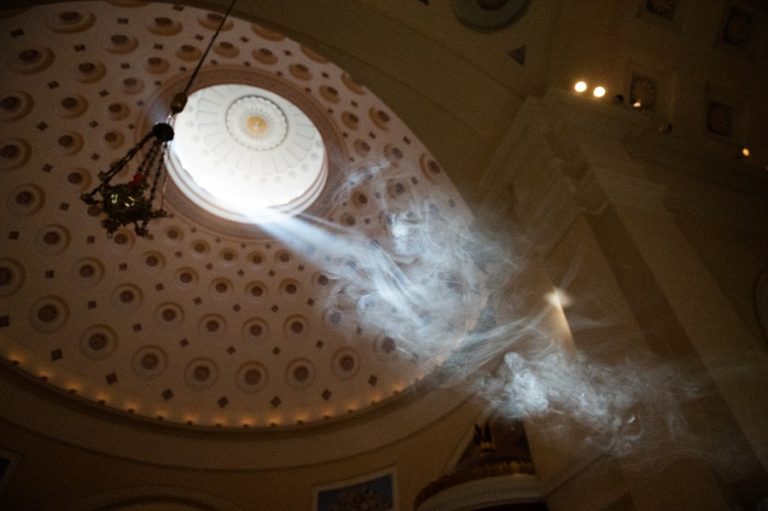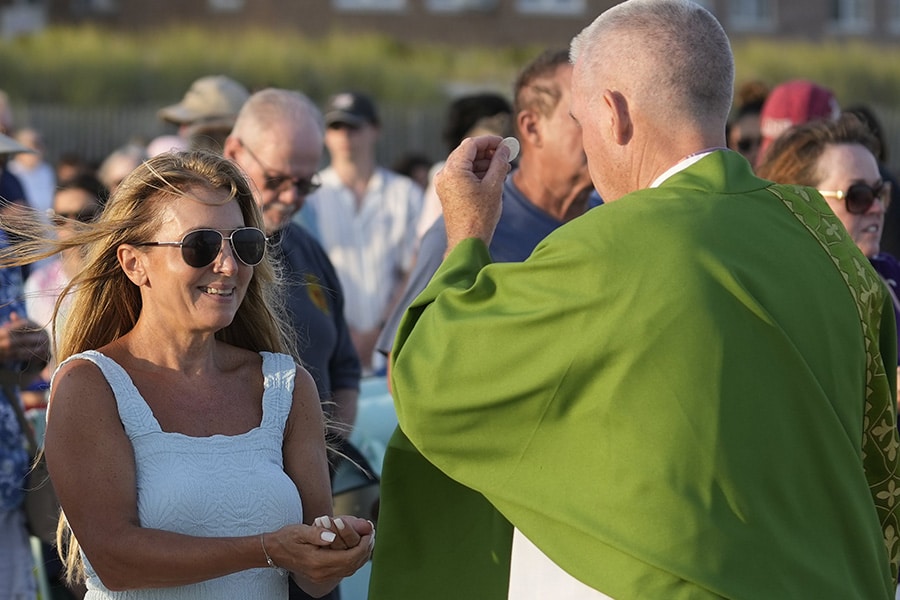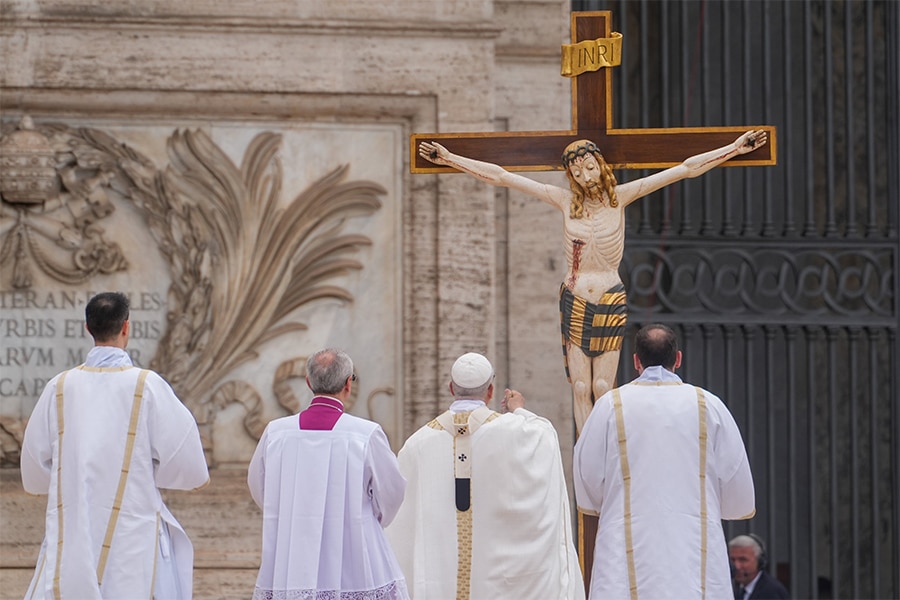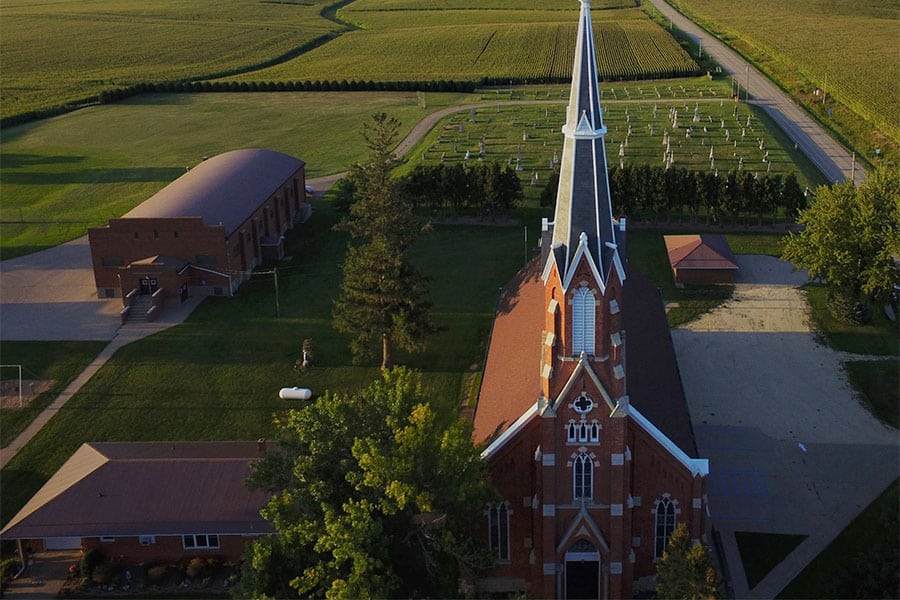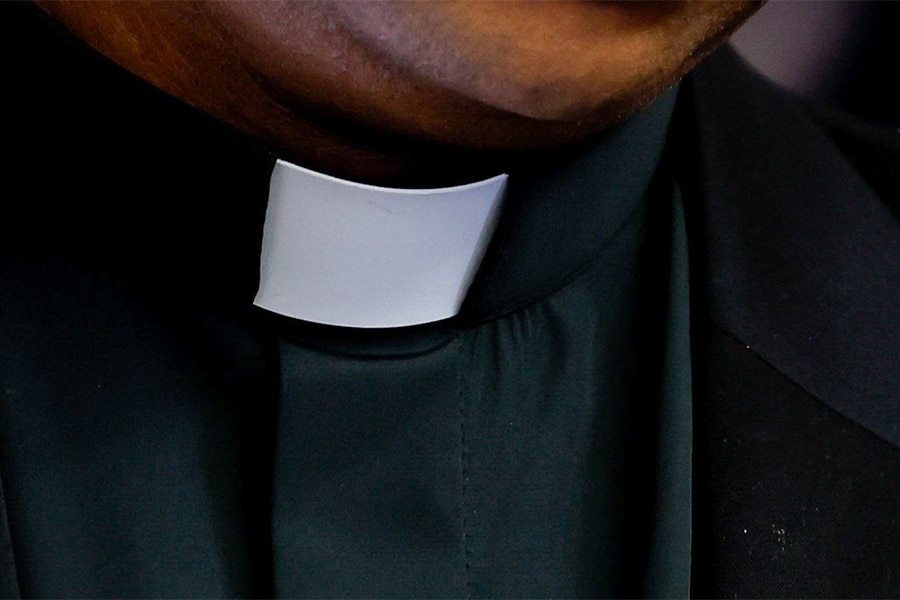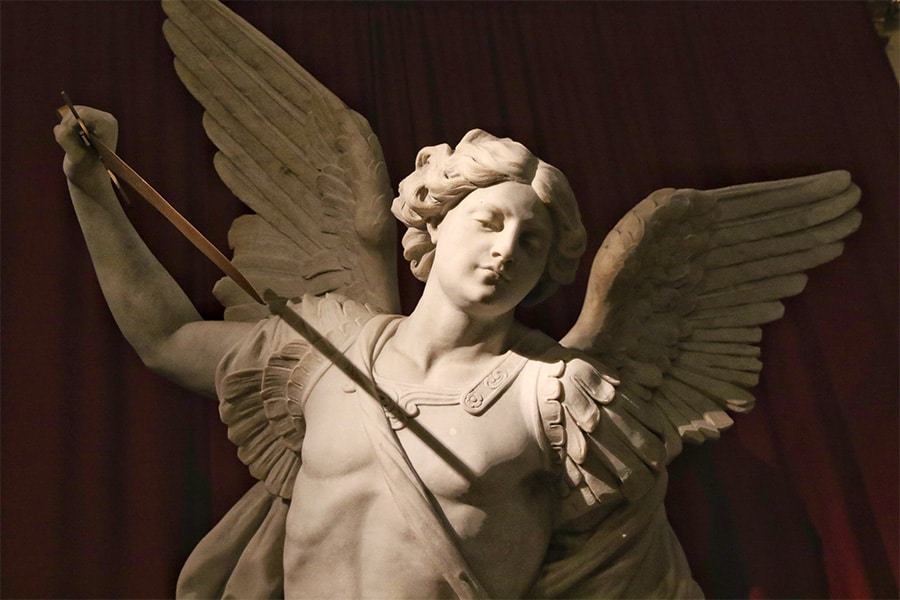Q. I have a daughter who is extremely sensitive to the incense that is used in church on feast days and during certain liturgical seasons. She is a chronic sufferer of migraines, the incense triggers them instantly and she becomes deathly ill.
Would she qualify to have Communion brought to her under these circumstances? If not, is there another solution to her plight? (Winfield, Kansas)
A. Yes, your daughter would qualify to have holy Communion brought to her at home. Her strong allergy to incense is as real as any other disease. But I would look first for a solution that offers your daughter the opportunity to be present at Eucharist with her fellow Catholics.
Does your parish use incense at every Mass or just on certain feasts? Is it possible, by a call to the rectory to know this in advance? Or is there another Catholic church within reasonable range where incense is used less frequently?
And if none of these solutions is feasible and your daughter finds it necessary to stay home on most Sundays, might she think about going to Mass on a weekday, to experience the eucharistic celebration in person? (I know of almost no parish that uses incense at a weekday Mass.)
Q. I was taught that for a valid Mass, the priest must pray the exact prayer of consecration as written in the approved liturgical books, raise the host and chalice high, and either bow deeply or genuflect. Our priest barely raises them above his chest, does a quick perfunctory bow and basically makes up the words as he goes along. No two consecrations are the same. He doesn’t use the book and the words he says are not the words of Jesus at the Last Supper.
When confronted about this, he says that he speaks from the heart and that the Mass is more meaningful that way. I’m not sure that I’m even receiving the body and blood of Christ after his consecration — or if Jesus is truly present in the tabernacle afterward. Many of our parishioners are wondering the same thing. Please respond. (City and state withheld)
A. I wouldn’t worry about how high the priest holds the host and chalice. As an older priest who has had rotator cuff surgery on both shoulders, I can barely get my arms above the top of my head — and I don’t think that this affects the validity of the Masses I celebrate. But the words of consecration are a different matter entirely, and on this the church has spoken specifically.
In the papal bull “De Defectibus,” issued by St. Pius V in the 16th century when ratifying the Council of Trent, we read: “If the priest were to shorten or change the form of the consecration of the body and blood, so that in the change of wording the words did not mean the same thing, he would not be achieving a valid sacrament. If, on the other hand, he were to add or take away anything which did not change the meaning, the sacrament would be valid, but he would be committing a grave sin” (No. 20).
In the instruction “Redemptionis Sacramentum,” issued in 2004 by the Vatican’s Congregation for Divine Worship and the Sacraments, we are reminded: “It is not to be tolerated that some priests take upon themselves the right to compose their own eucharistic prayers or to change the same texts approved by the church, or to introduce others composed by private individuals” (No. 51).
And the General Instruction of the Roman Missal, the church’s official “guidebook” on the liturgy, repeats that same caution: “The priest will remember that he is the servant of the sacred liturgy and that he himself is not permitted, on his own initiative, to add, to remove or to change anything in the celebration of Mass” (No. 24).
More Question Corner
Copyright © 2021 Catholic News Service/U.S. Conference of Catholic Bishops

